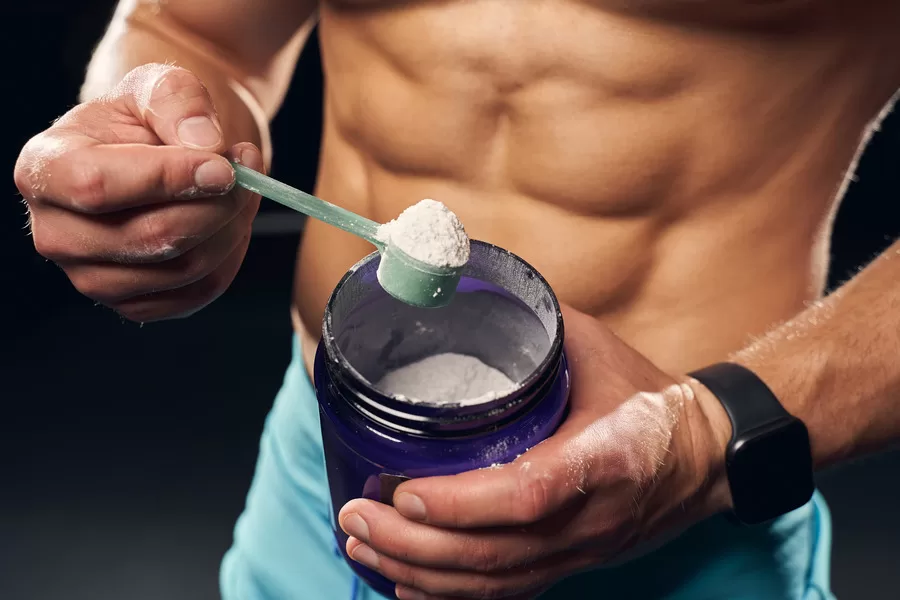
When it comes to understanding how our bodies work, hormones play a starring role. They’re like the body’s messengers, telling different parts what to do and when. Testosterone, often highlighted for its role in male health, is crucial for everyone. It affects everything from physical strength to mood. Now, let’s dive deeper into how this key hormone interacts with diabetes, a condition that affects how your body processes sugar.
Testosterone: A Hormonal Powerhouse
However, the influence of testosterone extends beyond male health. It’s vital for bone density, muscle strength, fat distribution, and even mental health. Men produce it mainly in their testes, while women produce smaller amounts in their ovaries and adrenal glands.
More Than Just Muscle:
- Bone Health: Testosterone helps maintain bone density, which reduces the risk of fractures.
- Mental health: It influences mood, energy levels, and even cognitive function.
- Metabolic Impact: Testosterone plays a role in how the body manages fats and sugars, making it a key player in overall metabolic health.
Diabetes: The Sugar Handling Challenge
Diabetes is all about how your body handles sugar, particularly how it uses insulin, a hormone that regulates blood sugar. In Type 1 diabetes, the body can’t make insulin. In Type 2, the body doesn’t respond to insulin properly. Both types require careful management to keep blood sugar levels in check.
The Balancing Act:
- Type 1 diabetes: daily insulin injections or a pump are often necessary to manage this condition.
- Type 2 diabetes: diet, exercise, and sometimes medication are key. Lifestyle factors and obesity often contribute to its development.
Testosterone and Diabetes: A Complex Dance
Low testosterone levels can increase the risk of type 2 diabetes. Testosterone helps the body’s cells respond to insulin, the hormone that controls blood sugar. Less testosterone means your cells might not take up sugar as efficiently, leading to higher blood sugar levels.
Testosterone’s Role in Insulin Sensitivity:
- Insulin Resistance: Low testosterone can make cells less sensitive to insulin, meaning they don’t absorb sugar as they should.
- Fat Distribution: Testosterone influences where fat is stored in the body, and certain fat distributions are linked to higher diabetes risk.
Testosterone Boosters: Not a Simple Solution
Deciding to use testosterone boosters involves more than just picking a product off the shelf, especially for individuals with diabetes. These supplements and therapies come in various forms, each with its own set of pros and cons. Let’s unpack this to understand better.
Delving into Natural Supplements
Plants, minerals, and vitamins are common sources for natural testosterone boosters. Marketers promote them as a means to naturally enhance testosterone levels, but their effectiveness can vary depending on their ingredients.
- D-Aspartic Acid: This is an amino acid that plays a role in testosterone production and release. Some studies suggest it can temporarily boost low testosterone levels in certain individuals, but its long-term effectiveness and impact on diabetes are less clear.
- Fenugreek: This herb has a history in traditional medicine for boosting libido. Fenugreek might help in slightly increasing testosterone levels, but it’s not a magic bullet. Its impact on blood sugar levels can be beneficial for those with diabetes, as some studies suggest it can improve glucose tolerance.
- Zinc: Zinc is crucial for various bodily functions, including immune response and cell growth, and it’s vital for testosterone production. Zinc supplementation can be beneficial, particularly if you have a deficiency. However, it’s important to stick to recommended doses, as too much zinc can lead to negative side effects.
While natural supplements are often seen as safer alternatives to synthetic therapies, they are not without risks. Their interaction with diabetes medications and blood sugar levels must be carefully considered. Moreover, the effectiveness of these supplements can vary greatly among individuals.
Understanding Synthetic Testosterone Therapies
Synthetic testosterone therapies are typically prescribed by a doctor and include various forms like injections, gels, and patches. They’re used when testosterone levels are significantly low and require a medical intervention.
- Direct Approach: Synthetic therapies provide testosterone directly to your body, which can lead to more noticeable improvements in muscle mass, mood, and energy levels.
- Monitoring is key. For those with diabetes, these therapies need careful monitoring. Testosterone can influence how your body responds to insulin, potentially impacting blood sugar management.
- Possible Side Effects: Synthetic testosterone can come with side effects like mood swings, increased red blood cell count, and skin irritation at the application site. Understanding these risks is crucial.
Thus, while testosterone boosters, whether natural or synthetic, can offer benefits like improved muscle mass and mood, their use in diabetes patients needs to be approached with caution. Natural supplements may offer a milder alternative with less risk, but their effectiveness can be unpredictable. Synthetic therapies provide a more potent solution but require strict medical supervision to manage potential side effects and interactions with diabetes medications. For anyone considering these options, a detailed discussion with healthcare professionals is essential to tailoring a safe and effective approach.
Research Insights
Studies show mixed results. Some indicate that testosterone therapy can lower insulin resistance in men with low testosterone and type 2 diabetes. However, the benefits vary greatly among individuals, and the therapy isn’t universally effective or safe.
Understanding Variability:
- Individual Differences: The response to testosterone therapy can depend on a range of factors, including age, overall health, and the severity of diabetes.
- Study Limitations: Many studies have small sample sizes or short durations, making it hard to draw broad conclusions.
Dietary Considerations for Diabetes and Testosterone Boosters
When managing diabetes and considering testosterone boosters, diet plays a crucial role. The focus should be on foods that support both stable blood sugar levels and natural testosterone production.
Essential nutrients include:
- lean proteins, which are critical for muscle maintenance and can indirectly support testosterone levels;
- healthy fats, especially omega-3 fatty acids found in fish, nuts, and seeds, which are good for heart health and hormonal balance;
- and low-glycemic-index carbohydrates from sources such as whole grains, legumes, and vegetables, which provide sustained energy without severely affecting blood sugar levels.
Additionally, incorporating vegetables rich in nutrients, fruits like berries and apples for fiber and vitamins, and fatty fish such as salmon for omega-3 fatty acids can optimize health for those managing diabetes and using testosterone boosters. Minimizing processed and high-sugar foods is also crucial to avoid blood sugar spikes and maintain overall health.
Physical Activity for Diabetes Management and Testosterone Enhancement
Physical activity is a cornerstone of managing diabetes and can also enhance testosterone levels. A combination of moderate aerobic exercise (like brisk walking, swimming, or cycling) and strength training (such as lifting weights or bodyweight exercises) is recommended.
Regular exercise, particularly strength training, can naturally boost testosterone production. It also enhances insulin sensitivity, making the body use insulin more efficiently, which is crucial for diabetes management.
Including flexibility and balance exercises, like yoga or Tai Chi, can improve overall well-being and stress management.
Exercise also plays a key role in maintaining a healthy weight and mitigating stress effects, both of which can impact blood sugar levels and hormone balance.
It’s important to start slowly, especially if you’re new to exercise, and gradually increase intensity and duration. Monitoring blood sugar levels before, during, and after exercise is crucial to avoid hypo- or hyperglycemia. Staying hydrated and consulting healthcare professionals before starting any new exercise regimen is also essential, particularly for those with diabetes-related complications.
Understanding the Side Effects of Testosterone Therapy
When you’re considering testosterone therapy, whether for boosting your hormone levels or as part of managing a health condition, it’s essential to be aware of the side effects it might bring. This is especially important for those with diabetes, as their body’s way of handling blood sugar can be affected.
Common Side Effects of Testosterone Therapy
- Skin Issues: One of the most visible side effects can be acne. Just like during puberty, a surge in testosterone can make your skin more oily and prone to breakouts.
- Sleep Problems: You might find yourself tossing and turning at night. Some people experience sleep disturbances, which can range from trouble falling asleep to waking up frequently during the night.
- Mood Changes: Feeling like you’re on an emotional rollercoaster? Testosterone therapy can cause mood swings. You might feel unusually irritable, anxious, or even experience sudden changes in mood.
Specific Concerns for Diabetics
If you have diabetes, there are additional signs you should be on the lookout for:
- Excessive thirst: If you find yourself reaching for a glass of water much more often than usual, it could be a sign that your blood sugar levels are higher than they should be.
- Frequent Urination: Along with drinking more, if you’re going to the bathroom a lot more, especially at night, this could indicate that your body is trying to get rid of excess sugar through urine.
- Unusual Fatigue: Feeling more tired than usual can also be a sign of fluctuating blood sugar levels.
Why These Signs Matter
These symptoms are important to watch for because they can tell you how your body is reacting to the therapy. In the case of diabetes, these signs are crucial as they directly relate to how well your blood sugar is being managed. Ignoring these symptoms can lead to complications with your diabetes management.
Conclusion: Weighing the Benefits Against the Risks
Incorporating testosterone therapy into a diabetes management plan can offer benefits for some, but it’s not without risks. The decision should be made on a case-by-case basis, considering the individual’s overall health, testosterone levels, and diabetes control.
Takeaway Points:
- Personalized Approach: Every individual’s health situation is unique, and so is their response to testosterone therapy.
- Professional Guidance: Ongoing consultation with healthcare professionals is crucial.
- Monitoring and Adjustments: Be prepared to monitor health closely and adjust treatment plans as necessary.
In summary, while testosterone therapy might offer some benefits for managing diabetes, particularly for those with low testosterone levels, it’s a complex decision that requires careful consideration and professional guidance. It’s not a magic bullet, but for some, it could be a useful tool in their health management arsenal.
Frequently Asked Questions
No, testosterone therapy is not a cure for diabetes. It may help manage some symptoms or complications, but it should be part of a broader treatment plan.
The safety of long-term use of testosterone boosters in diabetics is not fully understood and varies from person to person. Regular medical supervision is essential.
Yes, lifestyle changes like weight loss, regular exercise, and a balanced diet can naturally improve testosterone levels.
Not necessarily. The decision depends on individual health factors, testosterone levels, and how well their diabetes is managed.
It’s possible, but the research is less clear for women. Any hormone therapy for women, especially those with diabetes, should be carefully managed under medical supervision.







